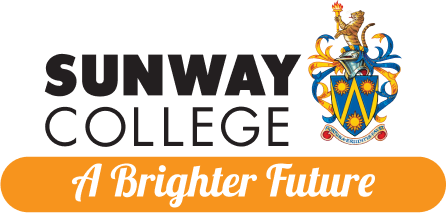These short exercises can help get you back on track

When your mind is racing or your emotions feel overwhelming, grounding exercises can take the edge of whatever you're experiencing in the moment.
Grounding is a simple yet effective technique that reconnects you with your body, your breath, and your immediate surroundings. Whether you’re feeling anxious, spaced out, or simply a bit overstimulated, these practices offer a way to slow things down.
And they're not just a short-term fix. With regular practice, they can improve emotional regulation, sharpen your focus, and build resilience. Think of it like strengthening a muscle – the more you do it, the easier it becomes to access your inner calm and clarity when things get tough.
Below are a few grounding exercises you can try. Each one is easy to learn, takes just a few minutes, and can be done almost anywhere (except when you're driving or during other activities that require focus to maintain your safety).
1. The 5-4-3-2-1 technique
This classic sensory grounding exercise helps anchor you in the present moment by focusing on your surroundings:
Look around and name 5 things you can see. Try to notice details you might usually overlook – colours, textures, light, or movement.
Notice 4 things you can feel. This could be your feet on the ground, the fabric of your clothing, or the air on your skin.
Listen for 3 things you can hear. Try to move beyond the obvious. Can you hear distant traffic? A ticking clock? Leaves rustling?
Identify 2 things you can smell. If nothing comes to mind, you can move to scents you remember or step into a different space.
Name 1 thing you can taste. It could be a sip of water, a piece of gum, or simply the taste in your mouth.
Why it works
When we become overwhelmed, our attention narrows and we lose touch with the present. This technique brings your focus outward, interrupting anxious spirals and helping the nervous system settle.
2. Feet on the Floor
This simple grounding exercise can be done sitting at your desk, in a lecture hall, or even on public transport. It helps you reconnect with your body and find a sense of steadiness.
Sit upright with both feet flat on the floor.
Press your feet down gently and notice the contact between the soles and the ground.
Pay attention to the weight of your legs, how the chair supports you, and the alignment of your spine.
Slowly shift your focus to the feeling of your body settling – the sense of gravity, the rhythm of your breath.
Stay with these sensations for 1–2 minutes, gently returning your attention each time your mind drifts.
Why it works
When we feel scattered or stressed, our awareness often floats up into our thoughts. Redirecting attention to physical sensations helps bring us back into our body and re-establish a sense of presence. It signals safety to the nervous system and helps reduce feelings of overwhelm.
3. Object focus
Carrying a small object in your pocket or bag – something textured, weighted, or meaningful – can serve as a portable anchor when emotions run high.
Hold the object in your hand and focus all your attention on it.
Notice its temperature, shape, texture, and weight.
Trace its edges, press it between your fingers, or roll it in your palm.
If your mind wanders, gently return to the physical sensations of the object.
Why it works
Focusing on a physical object diverts attention from internal distress and channels it into something manageable. It offers a sense of control when everything else feels uncertain.
4. Grounding Breath with Counting
Breathwork alone can be soothing, but adding a counting rhythm gives your mind something to latch onto and enhances the effect.
Inhale slowly through your nose for a count of four.
Hold the breath gently for a count of two.
Exhale slowly through your mouth for a count of six.
Repeat for 1–2 minutes, extending the count if it feels natural. (E.g., once you're familiar with the exercise, you could breathe in for a count of four seconds, hold for seven, and exhale slowly for eight.)
Why it works
Deliberate breathing stimulates the parasympathetic nervous system – your body’s natural 'calm down' switch. Counting adds structure, making it harder for racing thoughts to take over.
Our Helpline...
Whenever you need us, we're ready to help you. If you're a Sunway student and need urgent help you can contact our 24/7 hotline on 015-48770405 or you can WhatsApp us 24/7 on 011-3011-6505. (It's helpful to save both numbers in your phone in case you need them.)
If you would like to talk to a member of the counselling and wellness team, here’s how to make an appointment:
- Log in to iZone
- Click on Services -> eForms -> Counselling eForm
- Fill in the eForm with your particulars -> Submit
It's important to remember that seeking help is a sign of self-awareness and wisdom – it's never a weakness to ask for help when you need it.




